

philharmonic MEETING ARVO
Our visit to honour a true musical icon










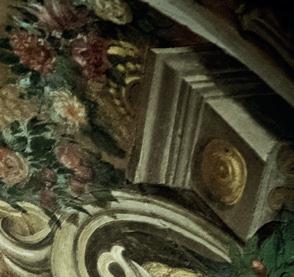








CELEBRATING MUSIC & PLACE


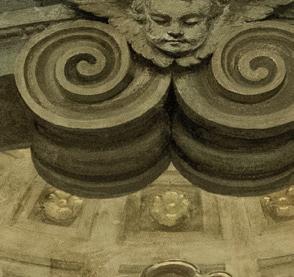








Martin Randall Festivals bring together world-class musicians for a sequence of private concerts in Europe’s most glorious buildings, many of which are not normally accessible. We take care of all logistics, from flights and hotels to pre-concert talks.



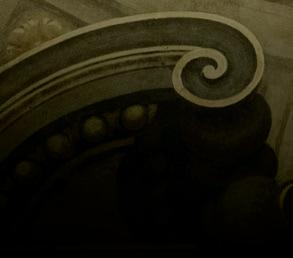






Photograph ©Ben Ealovega
WELCOME
Welcome to the RPS Magazine, created especially for you, our Members, to thank you for your support.
What’s struck us, curating this issue, is the range of stories and personalities to which our love of music can lead us all. Turn each page and you’re in a different world. We’re especially pleased to account our recent trip to meet a musical colossus – Arvo Pärt – in Estonia, and equally to shine a light on other composers you may not know, including Cassie Kinoshi, the late Stephen Dodgson, and others featured in a radiant new recording for Chandos Records. We’re also feeling festive, having met an unsung musical hero who plays a vital part in a treasured December tradition.

As always, we love to hear from Members, so please do get in touch at members@philharmonicsociety.uk to let us know what within these pages sparks your interest.
If you aren’t yet an RPS Member but find this magazine in your hands, please do consider joining: as an RPS Member, you can help the Royal Philharmonic Society – a registered charity – to support, celebrate and protect classical music and musicians nationwide. Please visit royalphilharmonicsociety.org.uk for more details.
With thanks and best wishes,
The RPS Team
Meeting Arvo An unforgettable expedition to Estonia
The Organ Tuner
Meet a remarkable musical craftsman
Q&A with Cassie Kinoshi
A composer shares her passions
Schubert and Me
A piano sonata casts a potent spell
Discover Stephen Dodgson
Insights into a composer we all should know
Raising Voices
Helping young singers to excel in Birmingham
Welcome Sounds
A joyful album to brighten this Winter Cover: iconic composer Arvo Pärt, with his son Michael,

MEETING ARVO
RPS Chief Executive James Murphy accounts a very special trip to visit one of the world’s greatest composers.
We all know the music of Arvo Pärt. It has found a place in the world all its own. It is music composed with such extraordinary tenderness that it compels such tender performances and inclines our most tender ear. Music is so often a welcome touchstone in troubled times. Arvo’s music has particular potency here: it almost seems to suspend everything outside of it. Listening, it’s just you and the music.
Some months ago, our Board and Council agreed to award the RPS Gold Medal to Arvo, a choice heartily endorsed by RPS Members at our AGM. The medal is for the highest achievements in music and dates back over 150 years. To present it, our Chair Angela Dixon and I
embarked on a pilgrimage to Arvo’s homeland Estonia this September, to meet the great man in the week of his 89th birthday. I choose the word ‘pilgrimage’ specifically, mindful it means a journey made for spiritual reasons. I’m not especially religious, but I find so much of my faith in life draws from and is fortified by music. Of course, Arvo himself is devoutly religious, and his music comes from deep religious contemplation. At the heart of the remarkable Arvo Pärt Centre where we visit him, there is of course a chapel, humbly adorned with Russian Orthodox icons. Nonetheless, his son Michael who plays a key part in coordinating his father’s affairs, tells us the Centre is visited by people of all faiths, all finding the light they seek in Arvo’s music.

The Arvo Pärt Centre is a beautiful haven. It’s a wide elegant web of wooden and glass chambers deep within a dense pine forest on a peninsula, 40 kilometres west of the capital city, Tallinn. In it, a small, dedicated staff is doing something extraordinary. They are setting out to enshrine every atom of an artist’s endeavour – within the artist’s lifetime. Every score of Arvo’s 180 works has not only been digitised: there are five musicologists on staff who forensically explore the music, and film extensive conversations with Arvo about every phrase and notation. There is a library comprising every book he has ever read, and every notebook he has ever written. There is an exquisite concert hall, custom-built for the performance of his music: one of its walls can be swung wide open to reveal a cinematic forest backdrop. There is also a tower where a glass elevator lifts you above

Left: Michael Pärt and his father Arvo holding the RPS Gold Medal, with Angela Dixon and James Murphy (photo: Birgit Püve); above/below: the Arvo Pärt Centre at Laulasmaa in Estonia
the canopy of trees, revealing the vast sea and the Finnish shore beyond. This was Arvo’s wish, so that the Centre dedicated to his music feels at one with the habitat that fundamentally inspired it. The Estonian government proudly played a part in building the Centre, and Michael tells us the nation’s President is an enthusiastic and regular visitor. You stand there, imagining if the UK might ever do such a thing for its great musicians. Michael tells us the Britten Pears Arts complex in Suffolk was one of the inspirations for this place, but what they are doing here – almost enshrining a composer and what composers do for the world – is truly something else.
Our meeting with Arvo is brief. At 89, he is delicate and, it turns out, already had one night out partying that week: a birthday concert of his music, of course. He tenderly strokes the face of Beethoven which adorns the RPS Gold Medal. ‘My friend’, he gently says. As sparkling cordial is passed around to celebrate the moment, he keenly clinks glasses with each person present, then holds the glass to his ear, entreating us all to listen. This, in a sense, is what his music does too. It so often draws us to the smallest, simplest sounds, and shows us what beauty we might find there.
As Angela said whilst presenting the medal: ‘Arvo, your meticulously-crafted creations communicate such clarity and beauty, drawing us to contemplate the very essence of music itself. You inspire us to savour every note, and you calm the hectic heartbeat of the world.’




Above: snapshots from our visit to the Arvo Pärt Centrethe concert hall, the library, and one of Arvo’s


THE ORGAN TUNER
For many people, hearing A Festival of Nine Lessons and Carols broadcast from King’s College Chapel, Cambridge (above left) on Christmas Eve, or watching Carols from King’s on BBC Two, is a much-loved tradition. Each year, millions worldwide listen to the iconic sound of the Choir of King’s College, Cambridge and the magnificent Harrison & Harrison organ. Among those working hard behind the scenes is Head Tuner Stephen Alliss (right). RPS General Manager Harriet Wybor asks him about his work, and what it’s like being on standby for that famous carol service.
I speak with Stephen as he is driving home to the Midlands from a day’s tuning at Wakefield Cathedral. Part of a team of regional tuners for Harrison & Harrison, he primarily covers the Midlands and East of England, but his
work takes him from Exeter Cathedral to St David’s in Pembrokeshire, Ely Cathedral, and north to York Minster. He started tuning 40 years ago while still at school, assisting a teacher who also had an organ-building business.
A typical week involves 1,000 miles on the road, visiting a different cathedral each day. Stephen explains that most cathedral organs are tuned once a month, starting by reviewing the notebook kept by every organ console that records any problems since the last visit. ‘To say you’re an organ tuner covers many skills. You have to be a woodworker, metalworker and leatherworker. These days, the way that organs function between console and pipework, you become a bit of a software engineer as well.’ It’s encouraging to hear that Harrison & Harrison offers apprenticeships to
young people who are interested, from its thriving workshop in Durham. I ask if tuners all play the organ, or whether people come to it from different routes. ‘Many come from a woodworking background, but some from church music and choirs. I play, but not everyone does: our primary concern is the relationship between one note and the next.’
To work his way around thousands of pipes, Stephen says ‘for larger instruments, I tend to do one manual [keyboard] of pipe work every visit, and within four months you can tune the whole instrument. To adjust the tuning, most pipework has a tin plate sleeve wrapped around the top, which you tap up or down to sharpen or flatten the pitch. There’s one reference pipe, which tends to be middle C of a four-foot pipe on the Great [the keyboard which controls the main division of the organ], known as the principal or octave. This is set when the organ is built, and everything is tuned in relation to that. Very few instruments are set at A440, as the pitch will go up and down with changing temperatures. I was brought up the hard way and tend to do it all by ear, but there are apps that allow you to carry the pitch of the reference pipe between different parts of the organ, which can be useful if you’re struggling to hear in the furthest corners of the instrument.’
For King’s at Cambridge, Stephen visits fortnightly due to the quantity of stained glass which causes the temperature to vary dramatically. A key date is the filming for Carols from King’s in early December. ‘I plan backwards from there so I know I’ve been through the whole

instrument in the visits before, so it’s as good as I can get it.’ On Christmas Eve, there’s opportunity, between the morning rehearsal and the afternoon radio broadcast, to make last-minute adjustments. ‘It’s not every year I need to: if I’m fine with it, and the organ scholar is fine with it, part of the skill of organ tuning is knowing when to leave it alone.’ I ask if it’s nerve-wracking being on standby for big moments like this. He says ‘I was so nervous the first time. If it’s live, your only options are to pull a wire off so a note can’t play, or lift pipes off. You have to know where everything is so you can act quickly. I’m more relaxed now, particularly with the instruments I visit often.’

Above: the mighty organ at King’s College Chapel, Cambridge; right: Stephen at work




After 40 years tuning – 15 with Harrison & Harrison – Stephen says ‘I wouldn’t do anything else, it’s a true vocation. The variety keeps it interesting, working in beautiful surroundings from angles the tourists don’t see. I walk into King’s and it still takes my breath away when I see new things in the architecture.’ I comment that he must have a good head for heights. ‘I’m terrible with heights!’ he laughs, ‘but you get used to it’.
Q&A with
CASSIE KINOSHI
One of our favourite musical moments of 2024 was hearing the first ever concerto for handpan, performed by RPS beneficiary Rosie Bergonzi with Chineke!, and composed by Mercury Prize-nominated Cassie Kinoshi. Her ingenious jazz re-think of The Nutcracker at Southbank Centre last Christmas was another treasure. Here she shares some of her passions.
Who were your first musical heroes?
Danny Elfman, Joe Hisaishi and John Williams – film and video-games always fascinated me, but the music in them, the way it’s an integral part of the world-building process, really sparked my imagination.
What was the first classical performance you remember?
My first time at the BBC Proms and my first time seeing the London Symphony Orchestra, when I was nineteen.


At the time I was obsessed with listening to, studying, and learning from Prokofiev’s works. The LSO performed Prokofiev’s entire Cinderella suite and (nerdily) I had a pocket score with me which I followed along.


Tell us about an inspirational music teacher.
Andrew Poppy was my composition teacher for one of my years at Trinity Laban. He was inspirational not only because of his approach to making various types of music and experimenting within mediums; he created a safe educational space during our lessons where I could share all and any music I was interested in. This made me feel comfortable in finding my own compositional voice without pressuring me to only focus on one way of interpreting or creating music: contemporary classical to R&B to jazz.
What’s your proudest musical moment?
Leading an eleven-piece ensemble (my band, which is called seed.) for almost ten years. I have to remind myself that leading and writing for a large ensemble consistently, as well as
Above: Nina Simone, Una Marson, Sergei Prokofiev;
right: Rosie Bergonzi performing Cassie’s Handpan
Concerto with Chineke! at the Queen Elizabeth Hall
organising matters behind-the-scenes for projects and touring, is quite an achievement!
What’s the scariest thing you’ve ever done in music?
Performing my work gratitude for seed. and the London Contemporary Orchestra in front of a live audience for the first time. It was the first time I’d been as overtly personal and introspective in a piece of music, since it was about mental health, and I found the premiere a very vulnerable and soul-bearing experience.
If you weren’t a musician, what might you do instead?
Before I decided to study composition, I wanted to be a science-fiction/fantasy writer and a journalist. I haven’t completely written it off as an option!
Share one vital piece of advice for anyone studying music. Remain open to new ways of thinking, of creating and hearing music: this is the key to staying honest and authentic in both how you play and how you write.
You can have two musical figures –living or dead – over for dinner. Who, and why?
Nina Simone: I’d love to hear her thoughts on the state of the European contemporary classical world now, as she initially wanted to be (and trained as) a concert pianist. After reading her biography, I know she’d also have some colourful stories to share.
Una Marson: although not a musician, as a poet and writer she’s been a
huge influence on my music over the last few years. I’d be intrigued to hear her thoughts on creative process and finding inspiration in times of adversity.
Tell us about a piece of classical music you’ve discovered lately, that you’d recommend to readers.
I’ve been listening a lot to Thomas Adès’s Concerto for Piano and Orchestra. After seeing the LSO perform it last year, I became pretty obsessed with the second movement in particular and have been studying the score as well as checking out all of Adès’s music that I don’t already know.
If you could change one thing about classical music in the UK, what would it be?
More representation of composers of various backgrounds, both on a personal level and in regards to genre, and more opportunities to have their music shine on larger stages and platforms. I believe the term ‘contemporary classical’ has room to continue broadening and embrace a wider range of people, performers and styles. That and diminishing the divide between audience, performers and conductor: music is a communal experience.
Complete the sentence: classical music matters because…
It’s a tradition that has the potential to connect us all on a very human level – emotionally, intellectually and physically. Shared musical experiences are integral to creating community, and classical music is a part of that.

SCHUBERT AND ME
Each year, we invite young people to put pen to paper and express their passions and opinions about classical music with the RPS Young Classical Writers Prize. You can discover the three prize-winners on our website, chosen by this year’s guest judges: broadcaster Kate Molleson and cultural historian Gavin Plumley. They were dazzled by the range of entries, and chose 25-year-old Will Fox as First Prize winner. Here’s his winning submission: evocative reflections on his lifelong connection with a Schubert piano sonata.
I was born listening to Schubert.
That is no exaggeration: my Mum chose to play on repeat the opening movement of the Piano Sonata in B Flat, a piece she knew and loved, to help distract her from the pain of delivery. As origin myths go, mine is far from exciting – yet I can’t help feeling that the choice of natal accompaniment was deeply prescient, and that this extraordinary music has become quietly entangled with the course of my life.

Though I’ve long loved classical music, I didn’t know this piece well until two years ago when, halfremembering Mum’s story, it brought me to the brink of tears in a library. Its depths are immediately evident: the movement’s opening theme –somewhere between chorale and lullaby – belies a sinister undertow, which surfaces with a rumbling trill in the bass and resonates in the following silence. The rest of the music is shaped by this aberration, the injection of primordial otherness into a world of serenity. The central development section in particular thrusts the familiar into strange light, culminating in a notoriously spellbinding passage in which the initial theme is circled again and again, first in the minor mode and then, miraculously, in the original major, made fragile and alien by the temporary gravity of the minor and the repeated trill. The effect of this, for me, is like standing in icy wilderness and seeing fleetingly the imprint of a loved one’s footsteps, or descending some katabatic fissure and encountering the

dusty replica of a childhood home. Such emotional alchemy is typical of Schubert: throughout the movement, the eternal binaries – joy and sorrow, memory and hope, grief and cherishing – are all placed into aching proximity.
As I came to know the music more intimately, I acquired a language to make sense of it. This language flowed from the many musicians, scholars, and philosophers who have been similarly arrested by Schubert’s final sonata in the nearly two centuries since its creation. There was the theorists’ jargon of enharmonic seams and hexatonic cycles, which collided with metaphors of star clusters and purple patches. There were recordings and essays which were visceral and exacting, like the titanic all-consuming slowness of pianist Sviatoslav Richter’s performances or the vivid musical philoso-poetry of a young Theodor Adorno. There were readings of narratives and images which had resonance in my own life: landscape,
alienation, home, sexuality, even at times the figure of the wanderer who treads lost and unconsoled through much of Schubert’s music and its accompanying literature. Yet I gained comfort too from the ease with which these words were shrugged off by the raw event of sound – the familiar hollow glow of the piano, the eddies of musical time, the pleasure of pure motion. Here was an honest place, somewhere to explore without self-consciousness or performative profundity, which showed me unknown aspects of the world and myself.
I do not know what music I will die to. Perhaps the universe will send me off to Gimme! Gimme! Gimme! (A Man After Midnight) or a single bar of Edgard Varèse’s Hyperprism stretched over five hours in an underground prison camp. But if many years hence I am lucky enough to choose my departing soundtrack, the choice for now seems clear:
I will die listening to Schubert.

BEX’S STORY
We’ve recently announced the six latest recipients of the RPS Julius Isserlis Scholarship for study overseas, a grant we’ve been giving since 1980 when a young Stephen Hough received it to study piano at The Juilliard School in New York. The funds making this possible were generously bequeathed to the RPS by Cecilia Helen Northcote, an RPS supporter who wanted to help young musicians broaden their horizons, in memory of the inspiring pianist, composer and teacher Julius Isserlis. Still going strong almost 50 years later, Cecilia’s legacy has helped so many people. If you would like to consider making such a gift that has a lasting impact on the lives of musicians, please get in touch. We caught up with percussionist Bex Burch, who received an RPS Julius Isserlis Scholarship in 2007 to travel to Ghana. Here she reflects on her time there.
Following a series of serendipitous meetings and moments, in 2007 I was awarded the RPS Julius Isserlis Scholarship to take an apprenticeship with the late Thomas Sekgura [pictured right], a master Gyil-xylophone player, composer, and maker in the Dagaare tradition, in Upper West Ghana.
Thomas and I travelled to Guo, a small village with a deeply amazing music scene, and began work. In August 2008, I passed out of the apprenticeship with the most incredible party at Thomas’s home and farm. Music and millet beer flowed, the dancing tore up the ground, and this is just one anecdote from a well of experiences I could never fully account in words.
I stayed in Ghana and built, repaired and played xylophones in the community while learning a little more about my own sound. Thomas moved back to Accra and passed away, to be missed by all, in November 2009.
One of my favourite lessons from my experience in Ghana is the concept of time: how it’s felt, how it affects everything in society, everyday interactions, music… even the way languages feel time. I realised that in stark contrast to English –where you can ‘waste’, ‘spend’ or ‘pass’ time – in Dagaare we merely ‘eat’ it.
‘How old are you?’ becomes ‘how many years have you eaten?’
I will be forever grateful to Thomas, his family and friends, who welcomed me in ways that still astound me. I ate a total of three years there, it was so holistic. The time I eat nourishes me, builds strength and health, and influences who I’ve become.

Chris Almeida
Since Ghana, Bex keeps traversing musical frontiers. In 2023, her solo album There is only love and fear was named The Guardian’s Contemporary Album of the Month. She runs the label and post-punk band Vula Viel, and has collaborated with many influential artists including Evelyn Glennie, and Leafcutter John with whom she created the album Boing! Both recordings you can discover on Spotify.

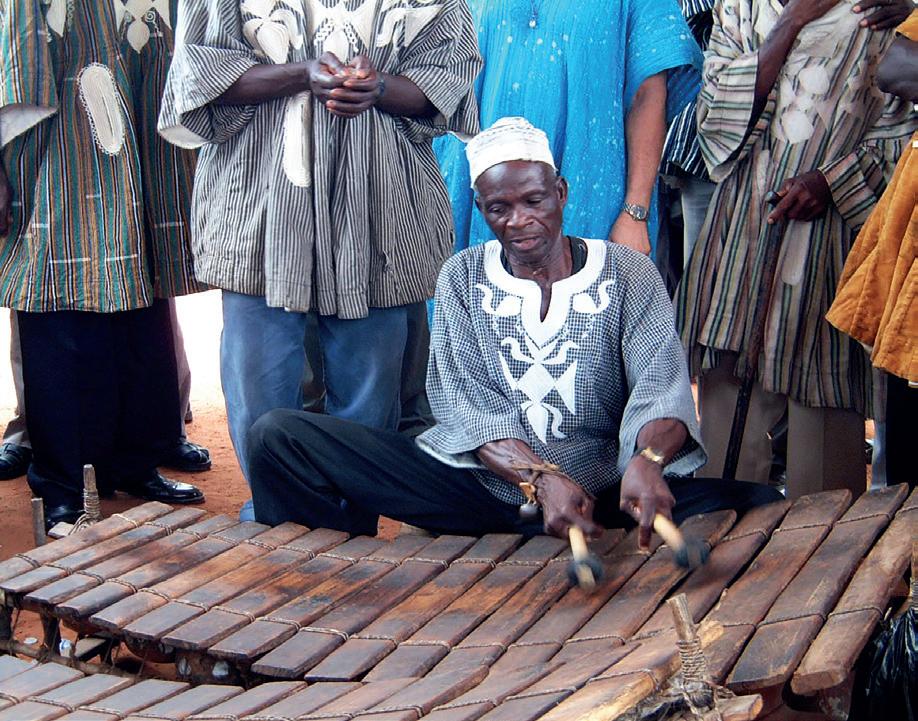
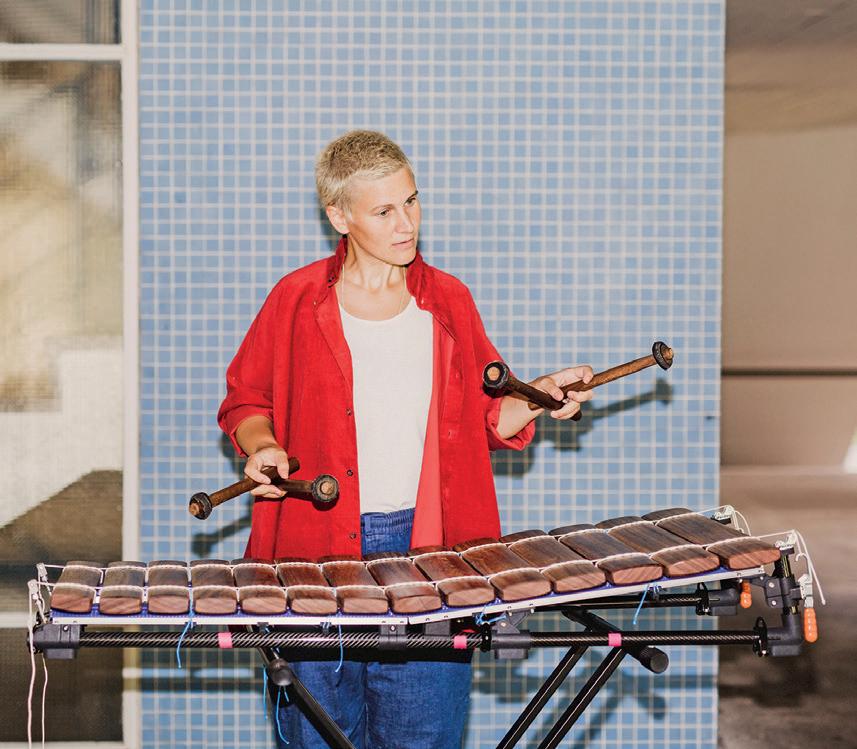
DISCOVER STEPHEN DODGSON
For 200 years, the RPS has been commissioning enthralling new music: from Beethoven’s Ninth Symphony to the cohort of talented composers we annually support today through the RPS Composers programme. In 1949, the composer Stephen Dodgson was one of the first recipients of this, formerly called the RPS Composition Prize, and this year is the centenary of his birth. With a vast catalogue of compositions and recordings to delve into, and a new book exploring his life and work, we invite several well-known musicians to share insights into his music and highlight some of their favourite works.
To older readers, Stephen will be remembered as a voice on BBC Radio 3. For many years he worked as a presenter whose intelligent, generous personality was a regular, comforting feature. But the central focus of his creative life was as a composer. He was prolific, from opera and choral

works to instrumental music, making a particularly important contribution of works for guitar. His centenary is a chance to appreciate the full breadth of his achievement. His music is characterised by exceptional technical craftsmanship, making it enjoyable to perform and sing. His output draws influence from some mainstream 20th Century masters – Janáček, Shostakovich, Debussy and Britten –from which he forges a highly personal voice. Stephen’s work is widely available in recordings now, including the full cycle of nine string quartets, allowing the music lover to explore his full achievement.

Thomas Hyde, composer, writer
Stephen composed guitar music over sixty years. He wrote for many of the finest players – Julian Bream and John Williams among them. His output included music for solo and multiple guitars as well as chamber music and several concertos. Ode to the Guitar (1991) is a glorious sequence of ten miniatures designed to provide musically-challenging concert music that doesn’t demand a high level of virtuosity from the player. A microcosm of Stephen’s guitar output, each piece is highly characterised and the guitar writing draws on many idiomatic features – pragmatic, yet imaginative. The guitar is notoriously difficult to write for if you don’t play it, but Stephen saw this as a positive. He said ‘It would be nothing but a disadvantage to me to try and learn to play the guitar. I’m sure it would have inhibited me from writing freely for it.’ Stephen Goss, composer, guitar

Aged 18, I didn’t realise how lucky I was to be the recipient of a trumpet concerto by Stephen. The commission, which transpired to be his last work in 2011, was my parting gift from the Thames Youth Orchestra. Aided by the orchestra’s conductor Simon Ferris, Stephen composed a short and brilliant concerto in his signature, quirky style. The middle movement, scored for trumpet and woodwind trio, is a beautiful re-working of Philip’s Repose, written in memory of Stephen’s dear friend and the eminent trumpeter, Philip Jones. I visited Stephen to play the piece for him ahead of the

premiere. My abiding memory is just how wonderfully encouraging he was. 13 years on, I’ve given numerous performances of the concerto and hope my soon-to-be-released recording with Britten Sinfonia will help to share Stephen’s music with a wider audience and encourage other trumpeters to play the concerto too. Imogen Whitehead, trumpet
Discovering Stephen’s music was a real joy. It was a treat to explore the rich variety of his output for the oboe and cor anglais. Although I never got the chance to meet him, his character shines through his music and I got to know so much about him through these extraordinary pieces. Aria e ciacona, the last movement of his Oboe Sonata (1987), shows moments of magic and a real understanding of the instrument’s different capabilities. He explores the higher register in the most beautiful way and offers so many magical moments where

he encourages the performer to try something bold. In this movement, he takes lyrical writing and sprinkles it with moments of mystery, hope, and a few turns of whimsy too. Countdown, his piece for oboe and harp, intriguingly shows the oboe in a completely different light. James Turnbull, oboe
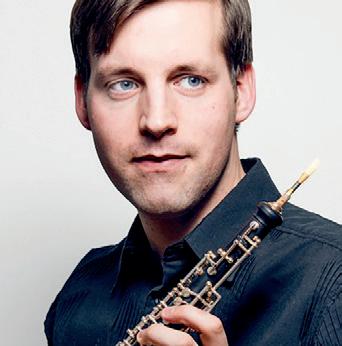
You can hear James’s recording of Stephen Dodgson’s Oboe Sonata, with pianist Libby Burgess, on Toccata Classics, while Ode to the Guitar has been recorded by Roberto Morón Pérez for the Cadenza Music label. Born by the Thames: Stephen Dodgson –A Centenary Celebration, edited by Oliver Chandler and Thomas Hyde (de la Porte Publishing, 2024), is available in paperback now.
Left: the new book about Stephen; above: Imogen Whitehead; right: Imogen with Stephen


RAISING VOICES
As we prepare to take the RPS Awards to Royal Birmingham Conservatoire on 6 March, we’re getting to know the staff, discovering what makes it such a distinctive destination. Here Paul Wingfield, RBC’s Head of Vocal and Operatic Studies, shares a glimpse into a department dedicated to offering something special.
I am now into my eighth year at RBC, and it’s been my great privilege to see the department go from strength to strength. We now have some 70 students from across the globe, all engaged in intensive training. A typical week sees students attending a round of Song and Language classes, Stagecraft, Movement, Yoga, Recording Skills, Historical Performance… We have regular masterclasses, a wonderful Chamber Choir, our VoxBox concert series, and informal platform slots so the students can try out new programmes to a friendly audience.

From top: Paul Wingfield; performing at Birmingham’s old button factory; Paul and the RBC vocal students inspiring local children
‘Learning by doing’ has been central to my vision. We see this pay real dividends daily. Students get to check in with their instrument, to see what’s stuck from their last lesson, and to practice managing performance anxiety. Opportunities to get up and sing are numerous. Small classes mean students can find themselves performing in front of their peers three or four times a week.
We don’t believe in favouritism. If we’ve chosen someone to study with us it means we believe in them. Students know when they come to RBC, they’re going to be known as an individual. This personal approach means we often find exciting opportunities for each singer. Recently we helped someone interested in developing their directing skills. Having graduated, she’s now making her mark with opera companies nationwide.
It takes a whole department to raise a singer. We’re lucky to have a team that’s expert and close-knit. I enjoy spending time with the staff and I’m sure the warmth of feeling among us is valued by the students. As a conductor, I’m in a distinct position to foster many different approaches to singing. I see it as a key responsibility to help students to understand the shared territory between these different approaches. It’s a joy to be able to talk about students as a team and to problem-solve (and develop) together.
I’m proud of our unique opera projects. We were lucky to receive significant support from The Linbury Trust in 2022, recognising something unique in our opera-making projects. We deliver three a year. Recent performances have included The Cunning Little Vixen in a rave bingo warehouse, Cendrillon in
an old gas storage facility, and The Enchanted Island in an old button factory! As part of Birmingham City University, we can engage student designers, stage managers and photographers to get involved. Birmingham has a rich history of opera in unusual venues thanks to the late Graham Vick. I’m proud to pay into that history.
I’m flattered when people think we run a specialist Opera Course. In fact, our place in the market is to offer stage opportunities to undergraduates and Masters students in ways that are perhaps more limited when there’s a separate postgraduate course. The fact that we compare favourably to other conservatoires is testament to the wellspring of talent in Birmingham.
We have lots of student success stories and celebrate them as a team. We’ve seen an exponential rise in the number of students entering the profession. Recent successes include those chosen for work with Garsington, Grange, Holland Park and Waterperry Opera festivals, and places with British Youth Opera, Britten Pears Young Artists, and Leeds Lieder Festival. A quarter of the intake of Genesis Sixteen singers come from RBC. There have been ‘International Voice of the Future’ awards (Llangollen Eisteddfod), starry alumni successes (like Claire BarnettJones’ performance in Cardiff Singer of the World) and solo performances with the CBSO. I’m energised to come into RBC each day, proud to watch our students develop, and delighted to see vocal training in Birmingham gain the strength of reputation it deserves!
We cherish sharing musical discoveries with RPS Members, especially when there’s an opportunity to highlight a recording we’ve enjoyed from a vocal group bringing a fresh approach to familiar and new repertoire. Corvus Consort released its second album Welcome Joy with Chandos Records in September. Here, the group’s Director Freddie Crowley – and composers Gemma McGregor, Shruthi Rajasekar and Judith Weir – introduce some of the glorious music featured on the album, and the inspiration behind their works.
I founded Corvus Consort in 2020, to present choral music in as engaging and accessible a way as possible. Our work includes commissioning new music, platforming unjustly neglected composers, and presenting historic music in a fresh and innovative light — all the while cultivating a relaxed, unstuffy atmosphere, without compromising on musical excellence. Our debut album Revoiced brought the magical sound-world of mixed-voice choir and saxophone quartet to both early and contemporary music, and our new disc is all about women’s voices.
Welcome Joy celebrates beautiful music written by women for women. I’m hugely grateful to the amazing team of young singers who brought this project to life, as well as harpist Louise Thomson, Shruthi Rajasekar for writing us some stunning new music, and everyone at Chandos for getting behind the project. It’s been a real joy from start to finish.

WELCOME


Freddie Crowley Director, Corvus Consort
When I was asked to set Love Was His Meaning by the mystic Julian of Norwich, I was struck by how few words there were for a four-minute piece. I read Julian’s book Revelations of Divine Love from 1373. I thought about her life as an anchoress, alone in her cell, with the gift of time that so few women had. Time to pray and to meditate. The reflective music at the start is inspired by the sound of bells calling her to prayer and her chanting. Each part in turn chants the word love on a single note. I wanted to pay homage to Julian’s courage when she contemplated questions of faith and doubt. The music gradually transforms into a full choral sound with a harp accompaniment that’s a salutation to her experience of divine love. Gemma McGregor, composer

SOUNDS

It was a pleasure to write two pieces for the amazing performers on this album. To create these works, I took a deep dive into Gustav Holst’s Rigveda-inspired repertoire. An important part of my process was engaging with the scholarship of Nalini Ghuman, Raymond Head, and Christopher Scheer, all of whom have studied Holst and his music extensively. My resulting pieces Ushas – Goddess of Dawn and Priestess are about the importance of creating affinity spaces where women can be together in joy. Shruthi Rajasekar, composer

Over the years I’ve taken any opportunities to write music for women’s voice groups, given that the historical repertoire isn’t very big. One of my inspirations has been the close harmony backing singers in R&B, Soul, etc. We Sekyn Here Rest was originally written for a brilliant school choir at Godolphin School in Salisbury. The challenge here is singing the text – also by Julian of Norwich – in its original 14th-century wording. To my ears it sounds a bit northern, and also folky. Setting a few lines to music has brought early English to life for me in this piece.
Judith Weir, composer
We’d love to know what you think of the album, or other new releases that have captured your imagination. Do get in touch to share your own discoveries.
Ben Tomlin
Handel’s Messiah
Call for Singers
Concert Sunday 9th March 2025
Led by Neil Ferris
A wonderful opportunity to sing Handel’s supreme masterpiece directed by our new Festival Conductor, Neil Ferris, culminating in a concert with the specialist baroque orchestra Canzona and outstanding young soloists.

Book through Dorking Halls - www.dorkinghalls.co.uk 01306 881717, or scan the QR code. Then select 18th January 2025 (ie. date of 1st rehearsal). Cost £70 with music, £65 without music. Please note we are using the Novello / Watkins Shaw edition.


cbso.co.uk/season

City of Birmingham Symphony Orchestra







Classical Music Artists aims to be the most reliable and up-to-date source of representational and management information for classical musicians around the world. With over 4000 managed artists, managers and management companies listed, it is one of the most comprehensive resources for artists worldwide.

to find out more.
